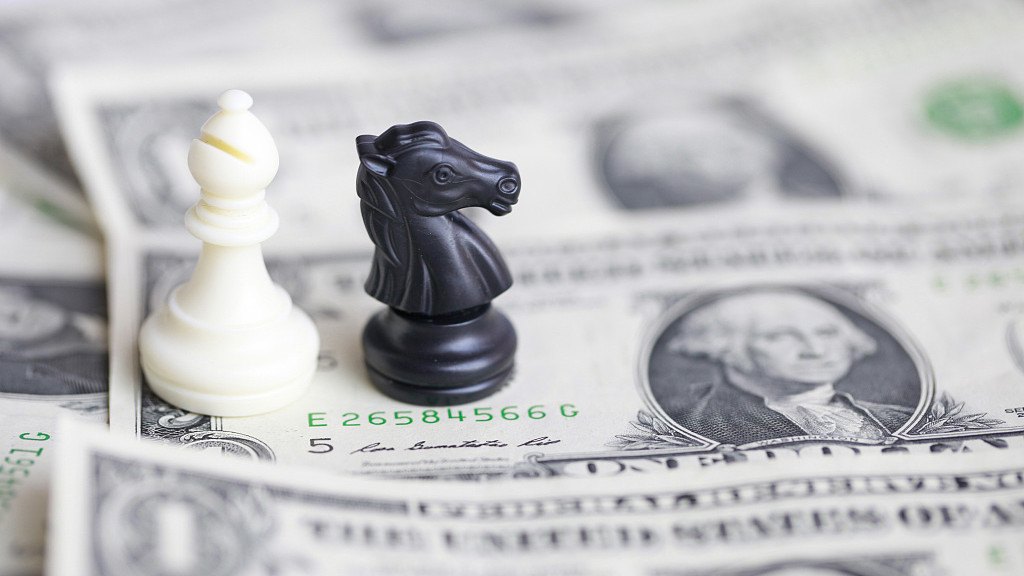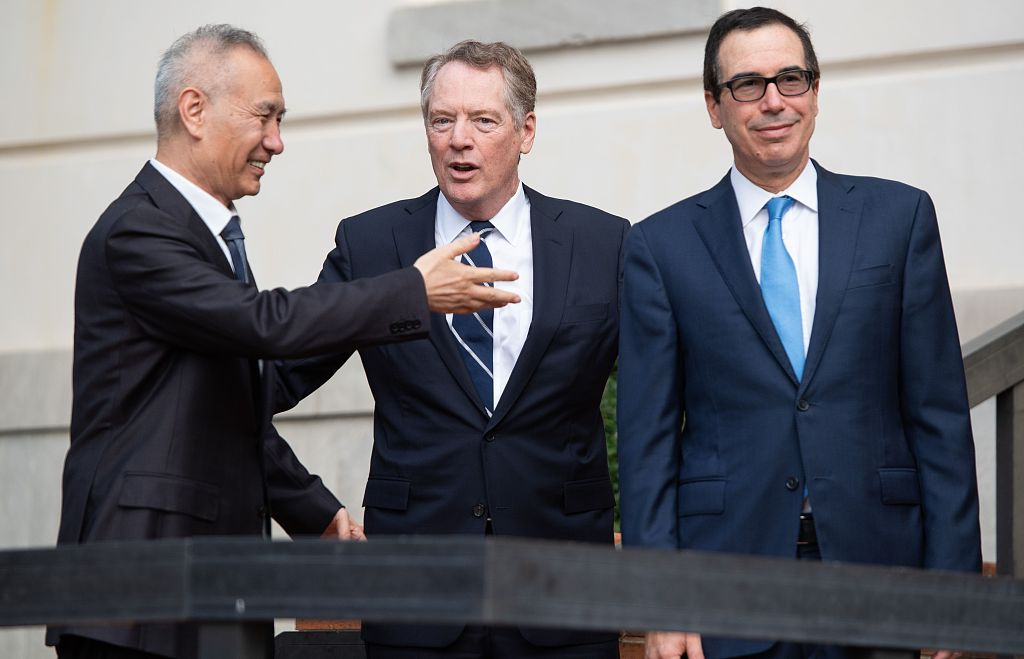
Editor's note: Tom Fowdy is a British political and international relations analyst and a graduate of Durham and Oxford universities. He writes on topics pertaining to China, the DPRK, Britain, and the United States. The article reflects the author's opinions, and not necessarily the views of CGTN.
On Monday, U.S. President Donald Trump told reporters that a potential China-U.S. "Phase One" Trade agreement was "ahead of schedule" that he would be looking to sign "a very big portion of the China deal" at an unspecified time. He reiterated a belief that this pending agreement would "take care of the farmers" and also "a lot of the banking needs."
News has speculated that this interim deal may be signed when Trump meets with Chinese President Xi Jinping at the upcoming APEC summit in Chile. Nevertheless, commentary has also sought to highlight existing differences in position between the two countries, with China reportedly pitching a demand for pending tariffs in November to be canceled in exchange for broader concessions on U.S. agriculture.
The remarks are nevertheless favorable and undoubtedly good news for observers. There is a growing body of evidence that the president is, despite his never-failing history of abrupt U-turns and random escalations, directly putting his stakes on a trade war endgame.
While the full path to concluding the trade war continues to remain uncertain and unclear, this ties into a broader shift of behavior from the White House which indicates Trump is more serious and more anxious about his re-election prospects. At a minimum, Washington appears to be open to some form of induced stability and breakthrough, even some of the specific details remain out of reach in the long term.
In America, there is now just over a year away until the election. Things are not looking good for Trump. He's marred by the ongoing impeachment inquiry which, while unlikely to remove him from the office will nevertheless severely damage his public standing. This event marked a watershed in his presidency which made him think in more anxious terms the prospects of his re-election.
His behavior has changed in tandem. Firstly, we see how the president created a massive distraction with his arbitrary decisions on Syria; secondly, we see how the timely killing of ISIL leader Al-Baghdadi is now being wielded as a trophy achievement of his term. These decisions are not signs of strength, but weakness. Trump is desperate to vindicate himself, deflect from criticism, and demonstrate that his term has been successful.
As a result, his approach to China also changed in line with these events. The president had for all of this year resorted to a strategy of "getting tough" – whereby any truces or negotiation windows were ended suddenly and randomly by an abrupt opt for escalation and more tariffs. There seemed to be no limit to how far the president was about to push, then suddenly the game changed and Trump coined the idea of a "trade deal phase one"– and has not stopped talking about it since.

U.S. Treasury Secretary Steven Mnuchin (R) and U.S. Trade Representative Robert Lighthizer (C) greet Chinese Vice Premier Liu He as he arrives for trade talks at the Office of the U.S. Trade Representative in Washington, D.C., U.S., October 10, 2019. /VCG Photo
U.S. Treasury Secretary Steven Mnuchin (R) and U.S. Trade Representative Robert Lighthizer (C) greet Chinese Vice Premier Liu He as he arrives for trade talks at the Office of the U.S. Trade Representative in Washington, D.C., U.S., October 10, 2019. /VCG Photo
Thus, political weakness, combined with the dragging effect on the U.S. economy which is being hurt through escalation, is leading the White House now to be serious at the least about some form of stability or measured conclusion. Pence's speech last week, where he ruled out "decoupling" and offered incentives for economic co-existence, was also a key indicator of this. The vice president was extremely constrained by his own standards, and has typically used speeches like this to set a "new normal" in relations. It didn't happen here.
Of course, what about China itself? Commentators have long speculated if Beijing and Washington can see eye to eye on some of the biggest differences which have stifled talks. These continue to be a significant factor. China is willing to accept compromise, but not capitulation.
Nevertheless, by this stage officials will certainly recognize the more serious shifts in Trump's rhetoric and are not likely to squander the opportunity of a "phase one" deal which can mark the first significant climb down in the trade war. On the other hand, Trump's own weakening political of course may help get their own demands, which includes dropping tariffs over the line.
In this case, a "phase one" deal which stabilizes the situation is not an unrealistic scenario. Trump would certainly not be placing so many expectations on it to set himself up for failure. Thus, while the broader resolution of the trade war remains a long term work in progress, as a whole the changing political context is inducing stability. One must observe how the rapidly shifting political climate in the United States has forced the president to consider his own achievements and re-election prospects seriously.
Thus while Trump will always be unpredictable in many ways, the idea a deal is "ahead of schedule" and likely to be signed in Chile is a realistic, although not guaranteed, outcome.
(If you want to contribute and have specific expertise, please contact us at opinions@cgtn.com)